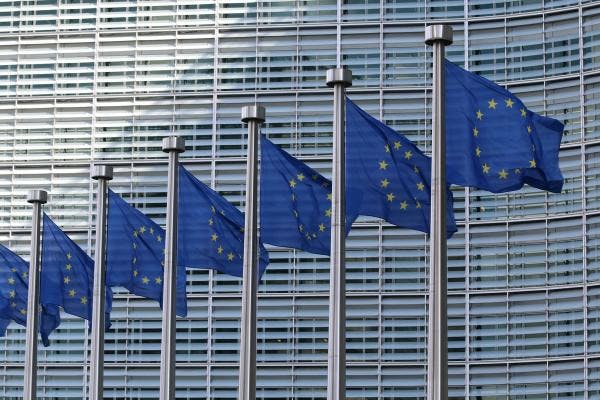Time for a new European approach on drug policy say people who use drugs
Statement from the European Network of People who Use Drugs:
EuroNPUD was shocked to see the outdated and off-policy statements of EU Home Affairs Commissioner Ylva Johansson and Annelies Verlinden Belgium's Minister for the Interior during a visit to Antwerp Docks blaming people who use drugs for acts of violence committed by organised crime, and committing the European Commission to achieving an ‘addiction-free’ society. It is extremely unfortunate that EU Home Affairs Commissioner, Ylva Johanson is not only using such stigmatizing language but also promoting the failed and outdated vision of a drug-free world.
It is deeply concerning to hear such closed thinking from European leaders when across Europe we are seeing an increasingly pragmatic and reflective approach to drug policy reform, including initiatives on medicinal cannabis, the legal regulation of cannabis for adult use, psychedelic drugs and healing, and enhanced harm reduction such as drug consumption rooms, drug checking and heroin assisted treatment.
Commissioner Johansson’s statements are also contrary to the EU’s very own Drug Strategy 2021-2025, which calls for EU action to reduce stigma against people who use drugs, and promotes increased and balanced investment in a broad range of demand and harm reduction services, discarding the failed paradigm of a drug-free world.
All UN agencies signed up to the UN Common Position on Drugs, which "reiterates the strong commitment of the United Nations system to supporting Member States in developing and implementing truly balanced, comprehensive, integrated, evidence-based, human rights-based, development-oriented and sustainable responses to the world drug problem.” The Common Position supports the decriminalisation of drug use and possession for personal use, as Portugal and many other EU countries have done, to create an enabling legal environment for harm reduction and drug treatment. As Michelle Bachelet, former UN High Commissioner for Human Rights, has stated, “Importantly, some countries have decriminalised various forms of drug use, aiming to ensure treatment and services without any fear and intimidation and to remove stigma.”
Legal regulation is being successfully implemented in different settings with cannabis, and is considered by many experts as the most appropriate response to reduce the violence associated with illegal economies such as drug trafficking. Decriminalization remains the major call for drug law reform as a sensible chance to end the human rights violations and racial injustice that are central to drug control and create the space for dialogue and change. EuroNPUD calls for the legal regulated control of all mind-altering substances and we understand this journey will take place incrementally.
When drug policy remains an area of such evolving and developing policy and practice, it is extremely worrying to hear key European leaders demonstrating such closed and outdated thinking. This is a time for reflection and change. Europe deserves leaders able to engage in such forward-looking conversations.
Supported by:
International organisations:
- International Network of People who Use Drug (INPUD)
- Students for Sensible Drug Policy International (SSDP)
- Women and Harm Reduction International Network (WHRIN)
- International Drug Policy Consortium (IDPC)
- Centre on Drug Policy Evaluation (CDPE)
Regional and National organisations (in order of sign-on date)
- Correlation-European Harm Reduction Network
- Release Legal Emergency & Advice Services (UK)
- Organisation for the Prevention of Intense Suffering (OPIS) (Switzerland)
- Instituto RIA AC (México)
- Harm Reduction (Australia)
- Forum Droghe (Italy)
- la Società della Ragione (Italy)
- Chemical Sisters (Italy)
- Youth RISE (Ireland)
- The Association for Humane Drug Policy (Norway)
- Centro de Orientación e Investigación Integral (COIN)
- West Africa Drug Policy Network
- ITANPUD APS (Italy)
- akzept e.V. Bundesverband für akzeptierende Drogenarbeit und humane Drogenpolitik (Germany)
- NZ Drug Foundation
- SKOSH (Netherlands)
- Andrey Rylkov Foundation for Health and Social Justice (Russia)
- Аfrica Network of people who use drugs (AfricaNPUD)
- POS Foundation (Ghana)
- Mainline foundation (the Netherlands)
- Law Enforcement Action Partnership (UK and EU)
- Citywide Drugs Crisis Campaign (Ireland)
- NoBox Transitions Foundation, Inc. (Philippines)
- Estonian Association of People Using Psychotropic Substances "LUNEST" (Estonia)
- Helsinki Foundation for Human Rights (Poland)
- GAT portugal - Grupo de Ativistas em Tratamentos/ Treatments Action Group (Portuga)l
- AIDES (Association de lutte contre le VIH/sida et les hépatites) (France)
- Associazione “L’Isola di Arran ODV” (Italy)
- Coalition PLUS (réseau international d'associations communautaires de lutte contre le VIH/sida)
- Drug Policy Network South East Europe
- ARAS - Romanian Association Against AIDS
- Service User's Rights in Action (Ireland)
- Društvo AREAL (Slovenia)
- MPDP / Movement for progressive drug policy Bulgaria
- Association Prevent, Novi Sad (Serbia)
- European Youth Drug Policy Consortium
- SSDP Vienna
- HOPS - Healthy Options Project Skopje
- Ex Aequo ASBL - Belgium (association communautaire de lutte contre le VIH/Sida et de santé gloable pour les HSH)
- Romanian Harm Reduction Network (RHRN)
- Rights Reporter Foundation
- Responsabilité Espoir Vie Solidarité (REVS PLUS) Burkina Faso
- West Country Respect (UK)
- Groupement Romand d’Etudes des Addictions GREA (CH)
- Groupe santé Genève
- Positive Voice -Greek Association of PLHIV
- PeerNUPS from Greece
- Hellenic Liver Patient Association “Prometheus”
- Association Prevent, Novi Sad, Serbia
- Brukarföreningen Stockholm ,Sweden
- CASO, Portugal
Related Profiles
- European Commission
- European Union (EU)
